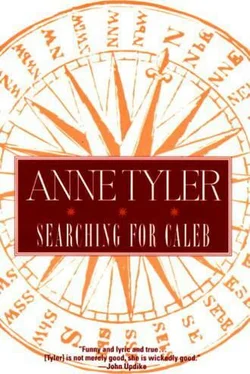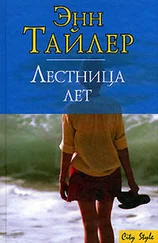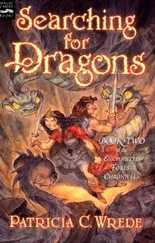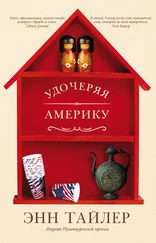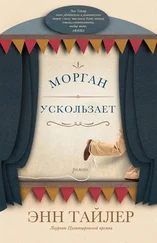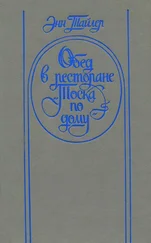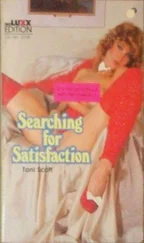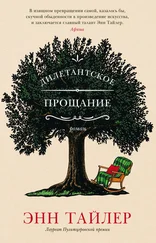“You wouldn’t know a jazz cellist , by some chance.”
“Any good musicians out of Baltimore?”
“Whereabouts were you in the spring of nineteen twelve?”
Ancient, dusty eyes peered back at him, but never ancient enough. “Nineteen twelve? What kind of memory do you think I got, boy?”
By imperceptible degrees the Pecks had altered Eli. He had begun to ignore the passage of time, as if it were somehow common . He felt irritated that ordinary people could not do the same.
Days were tiresome, yes, and hard on the feet, but nights were worse. The string of clubs, bars, cafés, dance halls, and strip joints went on forever, and all the music sounded the same to him: badly organized. Eli slipped into a place and out again, into the next. He ducked away at any mention of cover charge, waved off waiters and hostesses. When pressed, he ordered Dr. Pepper; mostly he left before things had gone that far. The scent of success discouraged him. He wanted failure, spooky little hole-in-the-wall cafés. For surely, he was thinking now, Caleb himself was a failure. Whatever he had ended up doing, it had not left any mark upon this town.
He entered bars that smelled of mildewed wood, that had names like The High Note or Sportin’ Life, where a few musicians played raggedly and without much interest. A black man sang above a guitar:
My train done left, Lord, done left me by the track,
My train done left, Lord, done left me by the track.
Tell the folks in Whisky Alley
I ain’t never coming back . . .
Eli shook his head. He slid past a drunkard and returned to the sidewalk, where he milled among the tourists in a greasy, neon-lit, garlic-smelling night.
The following morning, he was up unusually early. He ate breakfast in a coffee shop near where he had been the night before, and he strolled past the same bars, but they were closed now. Farther down, an aproned man was sweeping the entrance of a strip joint that looked cheerful and homely by daylight. “Tell me,” Eli said to him. “You know that little old bar back there? Easy Livin’?”
The man squinted. “What about it?”
“You know what time it opens?”
“Most likely not till evening,” said the man. “You got a wait, fellow.”
“Well, thank you,” Eli said.
This morning he did not delve any further into the archives of jazz. He bought a paper and read it in a park. He had a second cup of coffee and a glazed doughnut. Then when the movies opened, he toured the city catching Jimmy Stewart films. Eli very much admired Jimmy Stewart.
At six o’clock he had a plate of scrambled eggs in a diner, followed by another cup of coffee and apple pie à la mode. Then he set off toward Easy Livin’—on foot, since it wasn’t far. He took his time. He nodded soberly as he walked and he looked about him with a well-meaning expression such as Jimmy Stewart might have worn. When he reached his destination, he straightened his string tie before stepping through the battered door.
Easy Livin’ was dark even now, when it was barely twilight. There was a bar with a brass rail, a few scarred tables, and at the end of the room a raw wooden platform for the entertainers. At the moment, there were no other customers. Only a boy behind the bar, and on the platform the black man who had sung the night before. He was squatting to hitch up some sort of electrical wire. He didn’t even look around when Eli came up behind him.
“Say,” said Eli. “Could I ask about a song?”
The singer grunted and then rose, brushing off his dungarees. He said, “This here is not one of them jazz joints, baby. Go on up the street.”
“Last night you were singing,” Eli said.
“Only the blues.”
“Ah,” said Eli, who did not see the difference. He pondered a moment. The singer looked down at him with his hands on his hips. “Well,” Eli said, “you were singing this here song I was wondering about.”
“Which.”
“Song about a train.”
“ All songs got trains,” the singer said patiently.
“Song about Whisky Alley.”
“Mm- hmm .”
“You recall it?” Eli asked.
“I sung it, didn’t I?”
“You know who wrote it?”
“Now how would I know that?” the singer said, but then, all of a sudden: “Stringtail Man.”
“Who?”
“The Stringtail Man.”
“Well, who was that?”
“ I don’t know. White fellow.”
“But he’s got to have a name,” Eli said.
“Naw. Not that I ever knew of. White fellow with a fiddle.”
“A fiddle,” said Eli. “Well — I mean, ain’t that a little peculiar for jazz?”
“Blues,” said the singer.
“Blues, then.”
“Now I don’t know a thing more than what I told you,” said the singer. But he hunkered down, anyway, getting closer to Eli’s level. “This fellow was away back, long before my time. He was lead man for White-Eye, old colored guitar man that used to play the streets. Now White-Eye was blind and the fiddler would lead him around. But whenever he fiddled, looked like the music just got into him somewhat and he would commence to dancing. Old White-Eye would hear the notes hopping to one side and then to the other and sometimes roaming off entirely if the music was fast and the fiddler dancing fast to match. So White-Eye hitched his self to the fiddler’s belt by means of a string, which is how we come by the Stringtail Man. Any body roundabouts can tell you that much.”
“I see,” said Eli.
“How come you to ask?”
“Well, there used to be this tavern in Baltimore, Maryland, called Whisky Alley,” Eli said. “Close by the waterfront.”
“So?”
“You don’t recollect where this Stringtail fellow was from , by any chance.”
“Naw.”
“Well, how about White-Eye?”
“Him neither.”
“No, his name. Didn’t he have a name?”
“White-Eye. White-Eye. White-Eye — Ramford!” said the singer, snapping his fingers. “Didn’t know I could do it.”
“I’m very much obliged,” Eli said. He dug down in his trousers pocket. “Can I buy you a Dr. Pepper?”
The singer looked at him for a moment. “Naw, baby,” he said finally.
“Well, thanks, then.”
“Nothing to it.”
By noon the following day, Eli had contacted every Ramford in the telephone book. He had located White-Eye Ramford’s great-granddaughter, a waitress; from there he had gone to see a Mrs. Clarine Ramford Tucker, who was residing in the Lydia Lockford Nursing Home for the Colored and Indigent; and from there to a Baptist cemetery in a swampy-smelling section outside the city. The sight of Abel Ramford’s crumbling headstone, a small Gothic arch over a sunken grave obviously neglected for years, smothered by Queen Anne’s lace and chicory, brought Eli up short, and for a long time he stood silent with his hat in his hands, wondering if this were the end of his road. Then he took heart and went to see the caretaker. He learned that Mr. Ramford’s site had no visitors at all, so far as was known; but that every year on All Saints’ Day a bouquet of white carnations was brought by Altona Florists, a very high-class flower shop with lavender delivery trucks.
And Altona Florists said yes, they did have a standing order for that date: a dozen white carnations delivered to this little colored cemetery way the hell and gone; and the bill was sent to Box Hill, Louisiana, to a Mr. Caleb Peck.
That was Saturday, August twenty-fifth. It had taken Eli exactly eighty-one days to complete his search.
* * *
Because he had been warned not to approach Caleb in person (“I want to do that much myself,” Mr. Peck had said), Eli came home without that final satisfaction. But it was almost enough just to tell his story in Justine’s kitchen and watch the old man’s astonishment. “What? What?” he said, even when he had clearly heard. He started circling the table again, kneading his hands as if they were cold. “I don’t understand.”
Читать дальше
